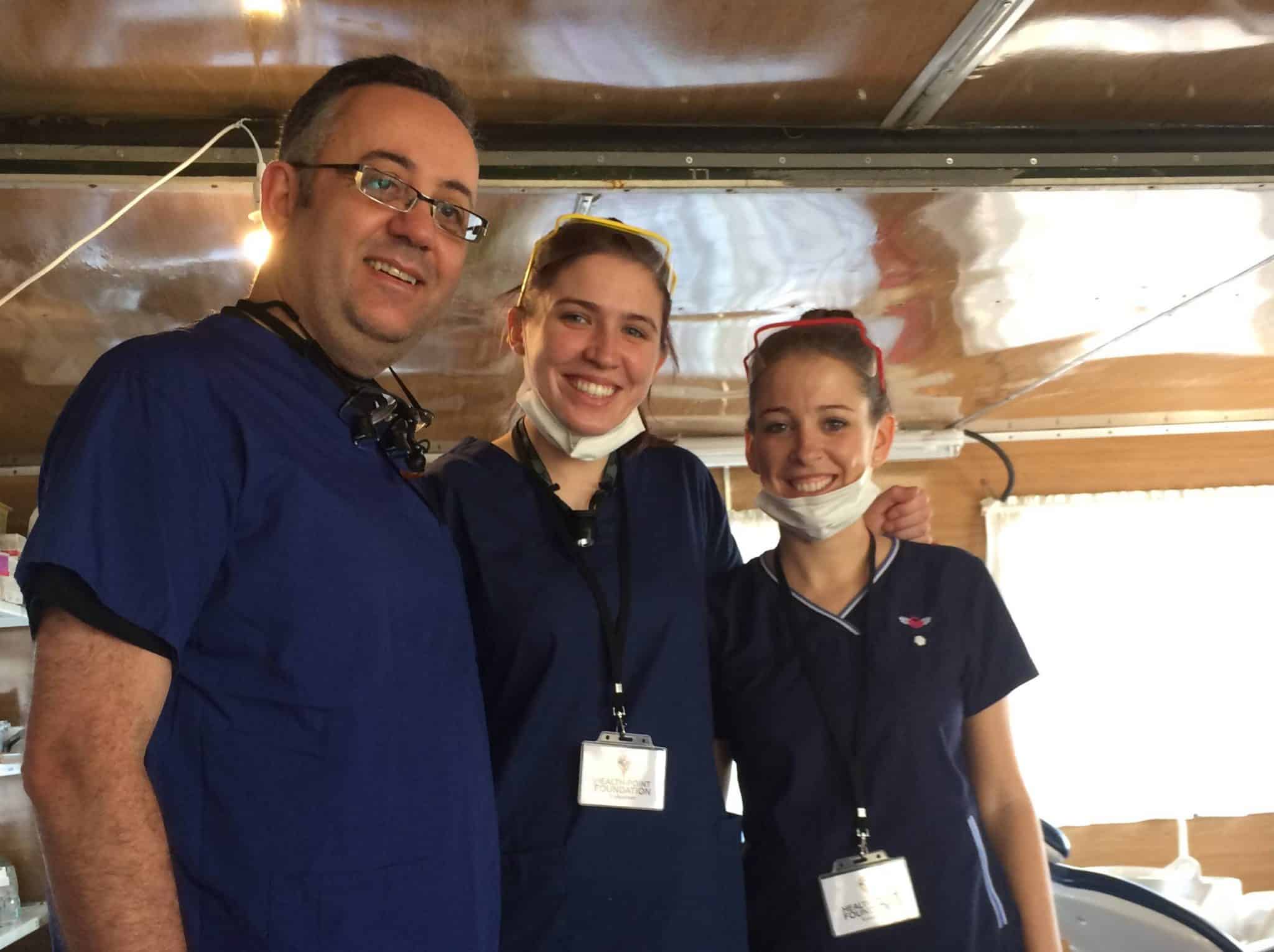DENTISTS are well known for the fear they inspire in their patients but one Tunbridge Wells practitioner has taken time out to bring comfort to hundreds of refugees.
Romulo Greco, who works for Southborough Dental Practice, spent a week in November at refugee camps in Thessaloniki, Greece, providing free dental care to those who have fled the conflict in Syria.
He went out to ease their plight – and returned with some heart-rending stories and a determination to provide more humanitarian aid.
The 46-year-old, who moved into the area with his wife Karin and two children last year, decided to pursue his venture after being moved by the plight of the migrants in the Mediterranean.
“As you go through the media you see that there is a real need for people to help out,” he explains. “I had seen previous colleagues doing something so I started to search how I could do it myself.”
Dr Greco was put in touch with the Health Point Foundation [HPF], which runs volunteer projects to help refugees, and he also worked in conjunction with the longstanding charity Dentaid.
But he admits to harbouring a few reservations before he embarked on his mission. “Initially I was a bit anxious, reading the reports about what people had seen who had gone out to the camps,” he says.
“The refugees do get agitated with the situation. They are living in tents and they want to move on with their lives. Most of them want to go to Germany, a lot have got family over there, and they are just waiting. That creates tension.
“And you don’t know the language, you can’t communicate with people – these things caused me anxiety.
“But we received good support from the local authorities and HPF. After a few days I found myself more comfortable – I was not so scared.”
In fact he soon found he was too busy to be afraid. There were five camps of different sizes; some had 300 refugees, some had 1,000. I was seeing 20 to 25 people every day.
“You can actually carry out treatments, root canal surgery and so on. But the equipment is quite limited, it’s very basic so in a sense you can’t do much. But it’s something you learn to work with.”
Dr Greco’s background came in very useful in this regard. He was born in Brazil and having qualified at Sao Paulo University, he became used to working on a shoestring.
“I came to the UK 10 years ago but before that I was doing this sort of job. I was working in the slums in Brazil for 12 years with very limited resources and equipment.”
Despite being hardened to deprivation, he was profoundly moved by the stories he encountered. “I had the opportunity to have a chat with a gentleman over there who took me on a tour of the camp and gave their views of the situation.
“He told me how he had crossed borders, how dramatic it had been to cross the ocean, how he had to keep blowing through a tube to keep the boat afloat, with his family and children with him.”
All the while the war was raging over the water in Aleppo, where the majority of his patients had come from. It wasn’t as if they had never seen a dentist before, though.
“These people had been leading normal lives. A lot of them came from Aleppo, they had to flee because of the war situation.
“But they had been to dentists before, some of them already had braces,” he adds. “They just had to leave everything behind.”
He was particularly moved by one man’s story. “This gentleman, his name was Ahmed, showed me on YouTube when a Russian aircraft crashed into his house and the film showed him being removed from the rubble.
“His story was very touching for me. To be able to get in the boat and go across borders, it costs a lot of money. He had spent $6,000 to get to Greece.”
The experience has left Dr Greco with lasting memories – good and bad – and an even greater resolve to return to Greece as soon as he can.
“I will definitely do it again next year. The war out there is never-ending. Our governments do have responsibility for what is happening.
“But you feel guilty at not being able to do much. Coming back here, you realise how blessed you are. We really don’t have any problems.”
However, the dearth of equipment remains an issue, and Dr Greco is considering ways in which he can persuade the hugely wealthy service providers in the industry to contribute.
He admits: “I need to get myself a bit more organised, and I also have to look at other resources to raise funds.”
“You think of all the big pharmaceutical companies that produce all the medication and equipment – if a handful of them gave £500 each, it would be nothing to them.”
Homeless but hopeful
During his humanitarian work in Thessaloniki, Romulo Greco came upon some art work by children in the refugee camps.
“Visiting one of refugee camps in Greece and I found these drawings on the wall. Nothing extraordinary would you say… However, came to my mind what these kids have left behind and what they are longing for.”
Â








